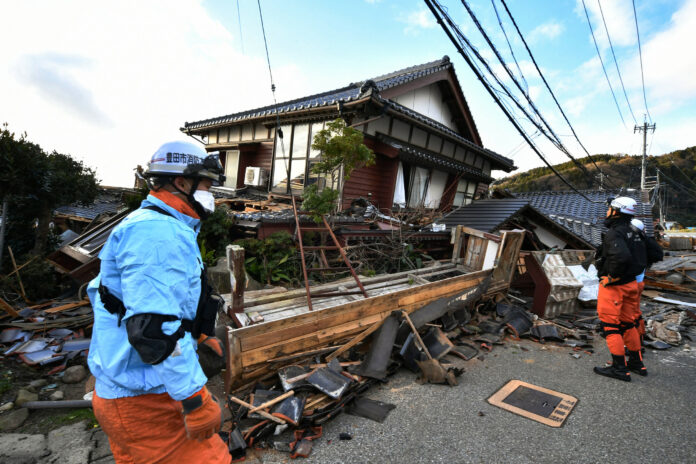A popular Chinese state media journalist who was suspended this week for unprofessional comments about the recent deadly earthquakes in Japan has been backed by droves of nationalists online.
In videos posted to the Chinese microblogging app Weibo as well as to Douyin, China’s version of TikTok, TV host Xiao Chenghao asked his millions of followers whether the New Year’s Day natural disaster that struck Ishikawa prefecture on the Japanese island of Honshu was “karma.”
His videos drew a flurry of responses from Chinese netizens, and his subsequent suspension by the Hainan Broadcasting Group in southern China—pending an investigation into his conduct—resulted in a backlash from many who thought his comments were fair.
The incident highlighted prevailing nationalistic sentiments among Chinese citizens, both offline and online, as well as the complex postwar relationship between China and Japan, in which historical grievances including years of Japanese occupation still linger in Beijing’s foreign policy. Instances of ultranationalism have been difficult to control, even as Chinese officials have sought to take a softer tone.
Xiao’s suspension was listed among the trending news items on Weibo, where a related hashtag was viewed over 140 million times as of January 4. His videos were removed but his accounts were spared from suspension.
His following on Douyin—a known hotbed of Chinese nationalism—skyrocketed from 6 to 8 million.
Under his other posts, netizens praised Xiao’s analysis and suggested he should have been promoted instead of suspended.
“Japan insults our nation, slaughters our people, and pollutes our oceans. If I condemn it with just a few words, is it against the law?” one Weibo user from Beijing commented.
The powerful earthquakes in western Japan has killed at least 73 people as of Wednesday morning. Already on day one, however, scores of Chinese netizens met the news with glee.
On the Chinese video-sharing platform Bilibili, where a function allows users to display new comments in real time, a state media bulletin about this week’s magnitude 7.6 temblor and aftershocks appeared to delight many viewers.
“Congratulations,” “good news,” and “Happy New Year” were among the messages left on the news broadcast.
KAZUHIRO NOGI/AFP via Getty
Wading into the controversy this week was Hu Xijin, former editor of the nationalistic newspaper the Global Times. He acknowledged Xiao had made a mistake but urged authorities not to punish him too harshly.
“A mistake is a mistake and should be penalized. But a common mistake should not bring a person down, and I think that should be the overall attitude of our society toward those who have erred,” Hu said.
Despite political differences over a range of issues, Chinese Premier Li Qiang this week led Beijing’s more diplomatic approach to the disaster in neighboring Japan, which occurred just weeks after an earthquake killed over 100 people in northwestern China.
On Wednesday, Li extended condolences by phone to Prime Minister Kishida Fumio of Japan. “China is willing to provide necessary assistance to Japan’s earthquake relief efforts,” the country’s official Xinhua News Agency quoted him as saying.
Wang Wenbin, a spokesperson for the Chinese Foreign Ministry, repeated the sentiments at a regular press conference on the day.
Uncommon Knowledge
Newsweek is committed to challenging conventional wisdom and finding connections in the search for common ground.
Newsweek is committed to challenging conventional wisdom and finding connections in the search for common ground.


